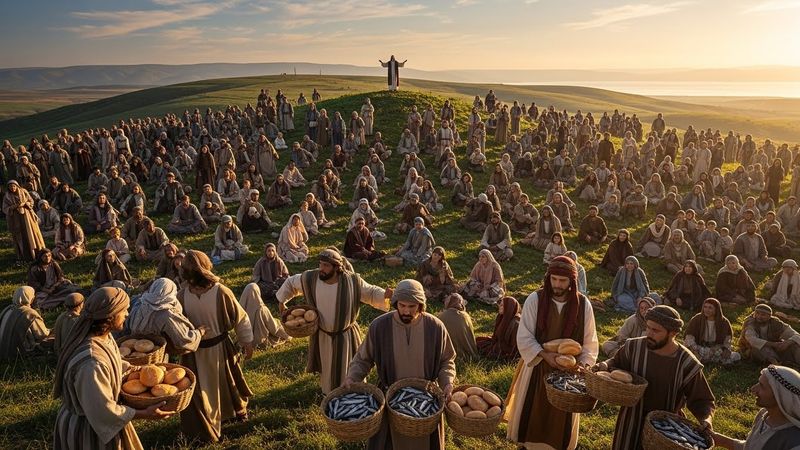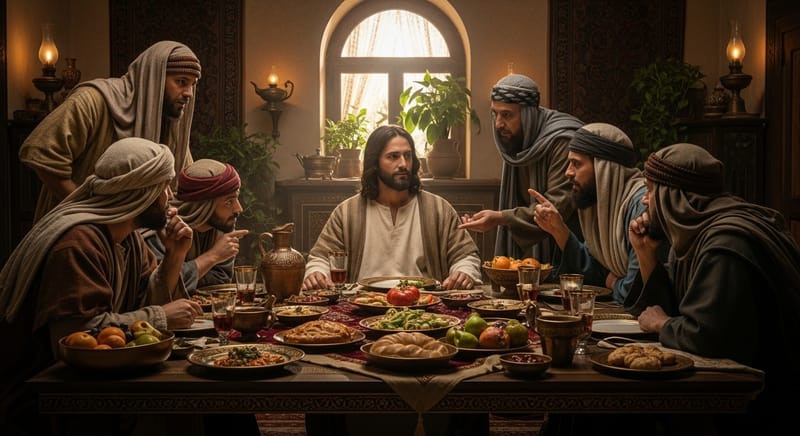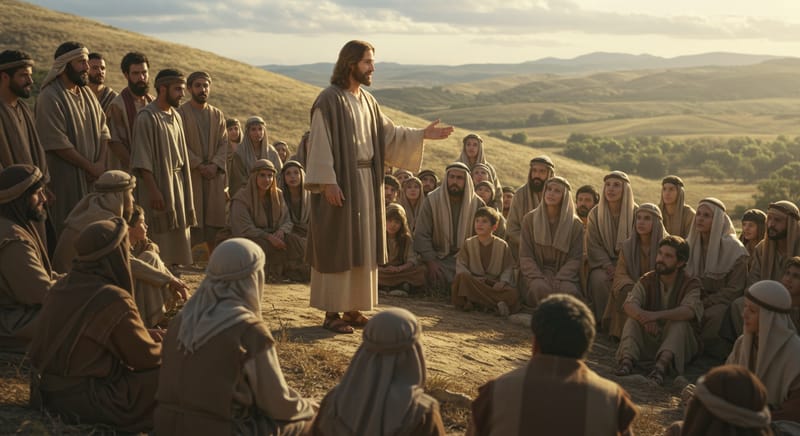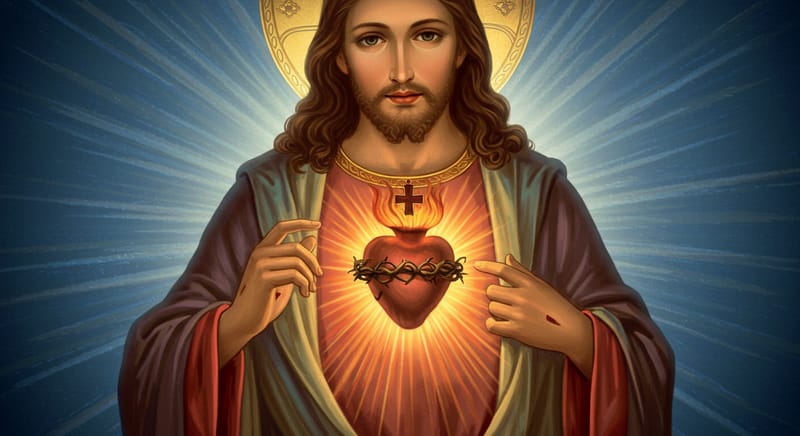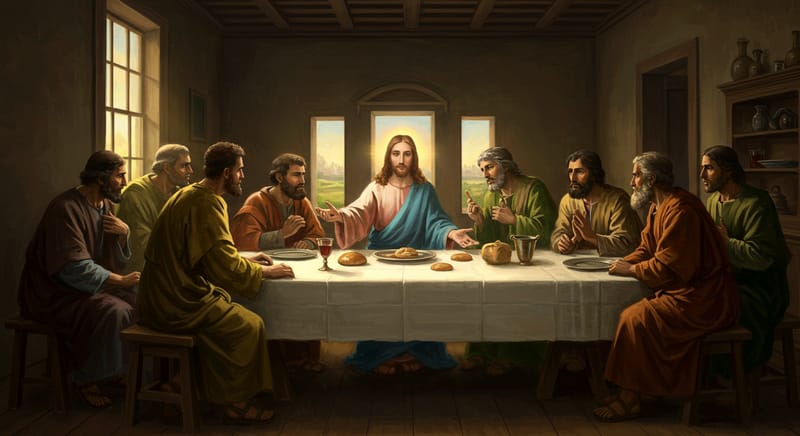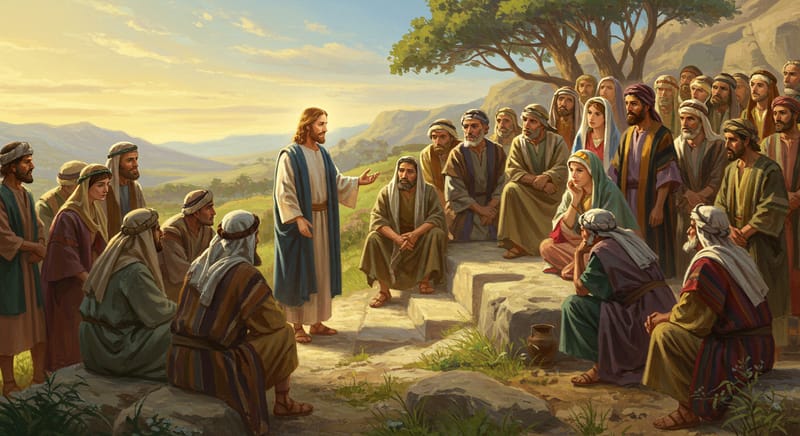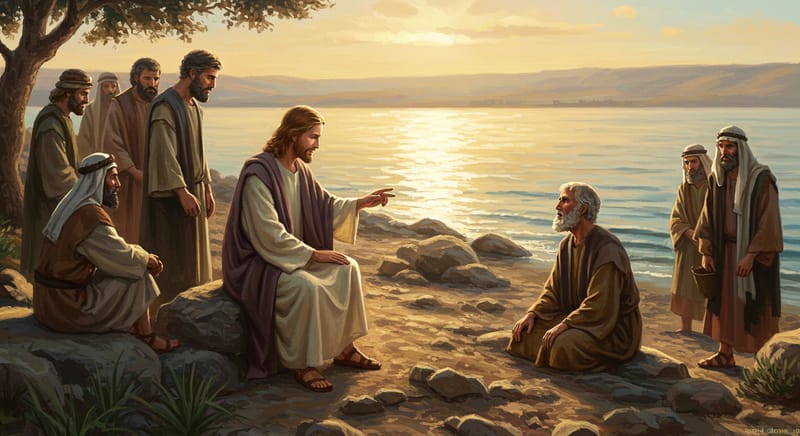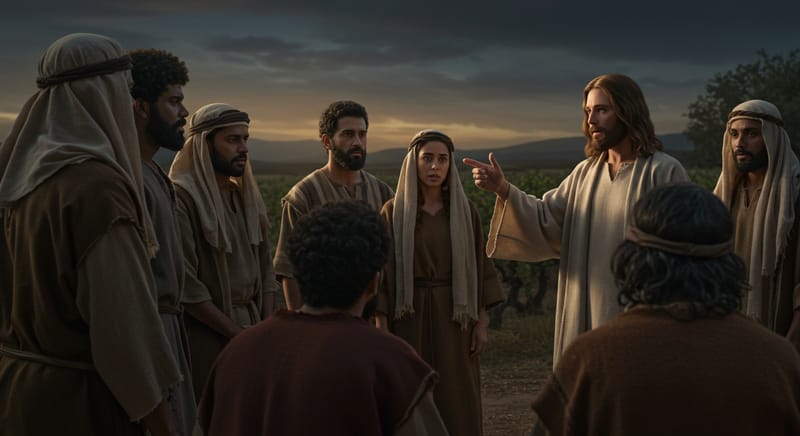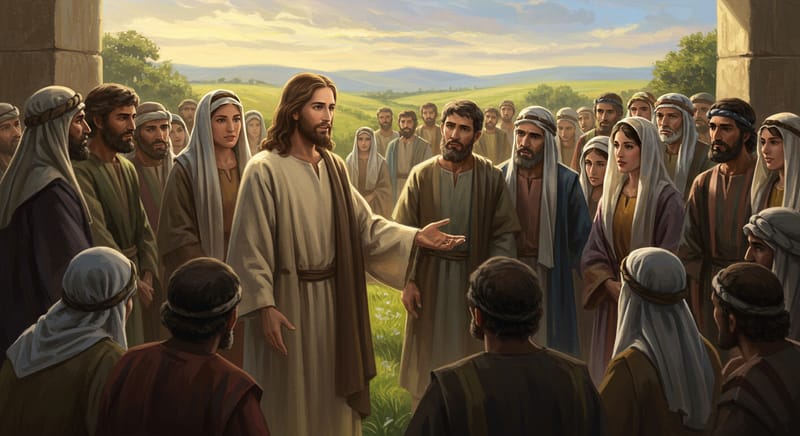DAILY HOMILIES #Love
It was out of love that Jesus opted to feed the multitude. Again, by asking them to sit down in small groups, Jesus taught us the power of small groups as places where we find love. After blessing the bread and fish, Jesus taught another powerful lesson on love by asking them to share. To love is to share; when we share what we have, it multiplies. As the crowd shared the pieces of the five loaves and two fish with love, it multiplied until all ate and were satisfied.
Read MoreIf I can keep God’s commandments or overcome temptations, I must learn to thank God because, left to my power, I can do nothing. All this boils down to the fact that we must avoid passing judgment on others while boasting about our goodness. Nevertheless, it is different when we correct others in love. This is what we see in today’s Gospel passage.
Read MoreWhether we like it or not, we will all experience rejection at some point in our lives, as long as we live in a world where freedom of choice exists. So rather than avoiding rejection at all costs and becoming people pleasers (which is worse), we need to prepare ourselves ahead of time for rejection and find ways to heal ourselves when it occurs.
Read MoreWhat makes a Christian different from any other human being on earth? Jesus Christ answers this question in today’s Gospel passage, and His answer is simple: LOVE FOR ENEMIES. You are not better than any sinner if you only love those who love you. Your Christian identity demands a higher attitude; that you love your haters as well.
Read MoreLove is empty if it doesn’t require anything from you. True love requires sacrificing for others, especially for the old. Just as loving God demands our wholehearted worship, loving our neighbours also demands sacrifice on our part.
Read More“I seek out my sheep, and I will rescue them from all places where they have been scattered... And I will bring them out from the peoples, and gather them from the countries, and will bring them into their land; and I will feed them on the mountains… I will feed them with good pasture, … they shall lie down in good grazing land, and on fat pasture, they shall feed” (Ezekiel 34:12-14).
Read MoreIn the feeding of the five thousand, one obvious lesson we learn is that we serve a God who is interested in our physical as well as spiritual well-being. Jesus would not allow the crowds to go away hungry. He felt their plight and worked a miracle to feed them. This same feeling of love and concern is what inspired our Lord Jesus to sacrifice His flesh and blood for us on our behalf.
Read MoreToday, Jesus wants us to know He is more pleased with our reconciliation with others than our offerings. Just as our gifts to God are expensive, forgiveness is also costly. Forgiving others can be painful if the person refuses to acknowledge their fault. However, this pain is worth it because it is pleasing to God and it purifies our hearts from unnecessary burdens.
Read MoreFor all those times, Peter would have to suffer; the only thing that would keep him going is the memory of his triple “yes” to Jesus’ question. Love is patient and kind; love takes no record of records; love never ends; love never gives up.
Read MoreThe world hates Christians because it sees a reflection of Christ in them. “And this is the judgment, that the light has come into the world, and men loved darkness rather than light because their deeds were evil.” (John 3:19). The world prefers darkness to light. Evil is always more attractive than good.
Read MoreIt is one thing to call a person your friend, but a different thing for them to recognise you as their friend. God considers us His friends, but how many of us relate to God as His true friends? In other words, how many of us are faithful to God’s commandments? How many of us love others as much as God loves us? What does it mean to love one another as God has loved us? It means that we pour ourselves out for the good of our fellow brothers and sisters. To love like God is to be a Prodigal Father ready to forgive as many as seventy-seven times seven times.
Read MoreIn a world of growing injustices, violence unleashed on innocent citizens, leaders refusing to rise to their responsibilities, and in a world where Christians are victims of unprovoked attacks, one is tempted to wonder if Jesus was right when he preached love in place of hate. If hating others (revenge) could make us joyful, Jesus would have recommended it. The fullness of joy we desire will not come from hating (destroying) others but from loving our neighbours and enemies as ourselves.
Read More